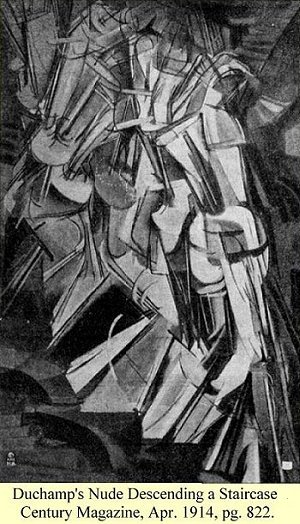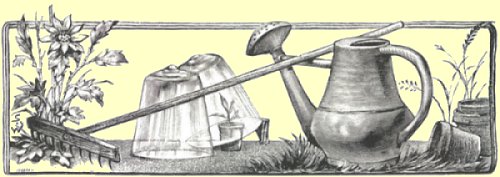Summer and Grantchester
Today, 1912 and summer. The University of Houston's College of Engineering presents this series about the machines that make our civilization run, and the people whose ingenuity created them.
The year is 1912: Marcel Duchamp has just painted his Nude Descending a Staircase; Rupert Brooke has written a poem about the village of Grantchester; and Niels Bohr has described electron orbits that're consistent with Planck's new quantum theory. Together, they show us a world lurching under our feet
 Planck and Einstein had set the stage. Planck found he could explain the radiation spectrum by assuming energy can change only in quantum jumps, and Einstein had begun writing his papers on relativity.
Planck and Einstein had set the stage. Planck found he could explain the radiation spectrum by assuming energy can change only in quantum jumps, and Einstein had begun writing his papers on relativity.
When Bohr lent legitimacy to quantum mechanics, time, space, matter, and energy began flowing together like spilled paints. They could no more be put back the way they'd been than Humpty Dumpty could. All we'd ever tried to call real began coming apart.
Duchamp's nude, who was no nude at all, also rearranged reality. She was a cinematic series of images of a highly abstracted human figure -- not as a camera would catch her, but broken into cubist fragments. It is as though we saw a nude suddenly coming down the stairs to join our party. Out of embarrassment, we glimpse her only in a series of blinks, from the corner of one eye. She is no longer an image at all. She's an event, smeared in time and space, just as photons and electrons were being smeared.
So our dizzying deconstructions continued throughout the twentieth century. And, in May of 1912, Rupert Brooke heard the sigh of that same Zeitgeist as he sat in a Berlin café, thinking about summer and his home in Grantchester, near Cambridge. He wrote,
... would I were
In Grantchester, in Grantchester!
Some, it may be, can get in touch
With Nature there, or Earth, or such.
...
I only know that you may lie
Day long and watch the Cambridge sky,
And, flower-lulled in sleepy grass,
Hear the cool lapse of hours pass,
Until the centuries blend and blur
In Grantchester, in Grantchester.
...
Say, is there Beauty yet to find?
And Certainty? and Quiet kind?
Deep meadows yet, for to forget
The lies, and truths, and pain?Ö oh! yet
Stands the Church clock at ten to three?
And is there honey still for tea?
Time did blur, and ten-to-three became an instant too precise to specify. Brooke summoned up an afternoon so lovely that a French impressionist might've painted it. But, by then, the impressionists had also exhausted themselves with the beauty of summer skies. Artists had moved on to abstract forms -- blurring time and space just as surely as Einstein and Planck had.
Now, another lovely summer is beginning in Houston. Another century is beginning. I look at the puff of white clouds, green grass, and the cool lapse of hours -- and my century seems to blend and blur with Rupert Brooke's. How odd that a world of corporeal reality still lingers out there -- despite the past century of rearranging clouds and time, space and sunshine.
I'm John Lienhard, at the University of Houston, where we're interested in the way inventive minds work.
(Theme music)
For the full text of Rupert Brooke's poem, see: The Old Vicarage, Granchester.
